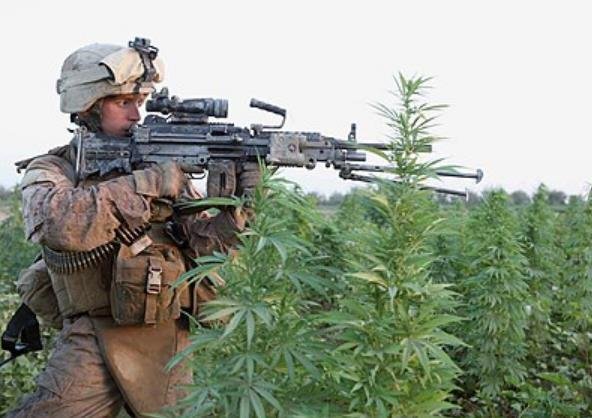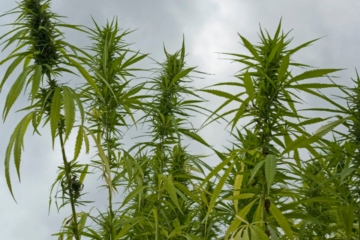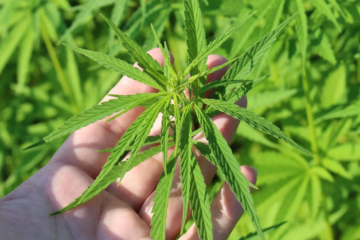When Elon Musk lit up a joint on Joe Rogan’s podcast back in 2018, it sent shockwaves across Wall Street. Tesla shares dipped. Twitter blew up. And now, years later, Musk is still making light of the incident, recently joking with Senator Ted Cruz about firing up again to boost podcast views.
It might sound like comic relief, but for thousands of U.S. military veterans living with chronic pain, marijuana use isn’t a punchline. It’s a deeply personal and often quietly managed part of their everyday survival.
Cannabis Use Among Veterans Is Common, Quiet, and Complex
A new peer-reviewed study published in Global Advances in Integrative Medicine and Health reveals that 40% of veterans suffering from chronic pain report using cannabis products to ease their symptoms.
That’s not fringe behaviour. That’s nearly half of a surveyed group—veterans who are already part of the VA’s primary care system.
But here’s the kicker: many of them are doing it without ever mentioning it to their doctors.
Only about half of the participants said they’d talked to healthcare providers about using natural products like cannabis. And it’s not necessarily because they’re trying to hide anything.
Sometimes, doctors just don’t ask.

Pain, Sleep, PTSD: Why Veterans Are Turning to Weed
Of those who admitted to using cannabis, the majority were using it for pain relief and mobility issues—no surprise there.
But that’s not all.
A sizable portion reported that weed helped with sleep (62%), anxiety or PTSD (43%), and even stress and depression. Here’s what the data from the 52-participant study said:
- 81% used cannabis for pain or mobility
- 62% for sleep
- 43% for PTSD or anxiety
- 43% for stress
- 29% for depression
That’s a pretty wide range of issues being addressed with one plant. And while critics may argue the sample size is small (which, to be fair, it is), the study’s findings align with what many veteran advocacy groups have been saying for years.
Natural Remedies Are Gaining Ground in Military Circles
Cannabis wasn’t the only product veterans reported using. According to the study, it came in third overall, right after vitamin D and multivitamins.
That’s telling.
It suggests that for a growing number of veterans, natural remedies aren’t just fringe supplements—they’re part of a larger wellness toolkit. And often, they’re being used instead of prescription meds.
The researchers noted a trend of using multiple natural products at the same time and sometimes as a substitute for traditional pharmaceuticals.
A few more stats from the report:
| Natural Product | Rank | Common Use Cases |
|---|---|---|
| Vitamin D | 1 | Bone health, immunity |
| Multivitamins | 2 | General well-being |
| Cannabis (CBD/THC) | 3 | Pain, sleep, mental health |
While vitamin supplements are widely accepted, cannabis still carries stigma—especially within the Veterans Health Administration, where federal rules bar providers from prescribing or recommending it.
Federal Barriers Keep Veterans in a Tough Spot
Here’s where things get messy.
Cannabis is legal in many states. But the VA operates under federal law. That means VA doctors can’t prescribe it, recommend it, or even really talk about it in detail with their patients.
So veterans are left to figure things out themselves. They lean on dispensaries, online forums, or trial and error. Some even worry that admitting cannabis use could impact their benefits or medical records.
That’s led to what researchers call “under-reporting,” meaning the actual number of veterans using weed for relief is probably higher than 40%.
One-sentence paragraph? Here you go:
No one really knows how big the number is.
Researchers from UC San Francisco and Yale said this silence is compounded by another issue: healthcare professionals just aren’t trained to talk about natural products. Many lack the background, the comfort level, or the freedom to discuss cannabis use, even when it’s relevant.
Veterans Want These Conversations—Doctors Aren’t Ready
The most striking stat from the study wasn’t about THC or CBD. It was this: 98% of veterans surveyed said they believe healthcare providers should talk to patients about natural products.
That’s nearly unanimous.
But the reality is, many clinicians don’t bring it up at all. Some don’t know enough. Others are constrained by federal policy. And some might be afraid to open a can of worms they’re not sure how to manage.
So what do patients do?
They go it alone.
They self-medicate, self-research, and self-advocate. They try different strains, dosages, delivery methods—smoke, oils, edibles, tinctures—and then try to figure out what works best.
It’s a trial-by-fire approach, and it’s happening behind closed doors in a system that isn’t quite ready to meet them halfway.
Musk and Cruz Can Joke—But This Is No Laughing Matter for Many
Back to Musk and Cruz.
The joke about smoking marijuana to boost podcast ratings might have landed well online. People laughed. Social media lit up. “Here we go again,” some said.
But for veterans dealing with chronic pain, trauma, and sleepless nights, cannabis isn’t entertainment. It’s often the only thing they’ve found that brings relief—without the side effects of opioids, without the long list of disclaimers, and without the fear of addiction.
That doesn’t make it perfect. But it does make it serious.
There’s no doubt the conversation around cannabis is changing. Laws are shifting. Public opinion is moving. But inside the VA system, many veterans still feel stuck.
They want honest conversations. They want support. And most of all, they want to be heard.



